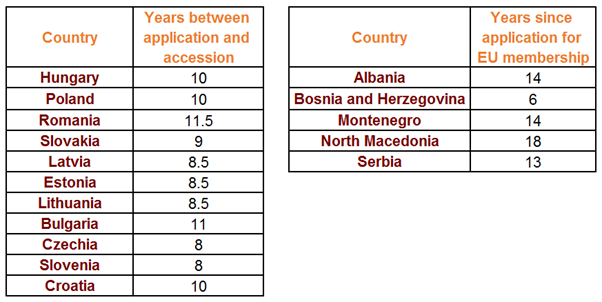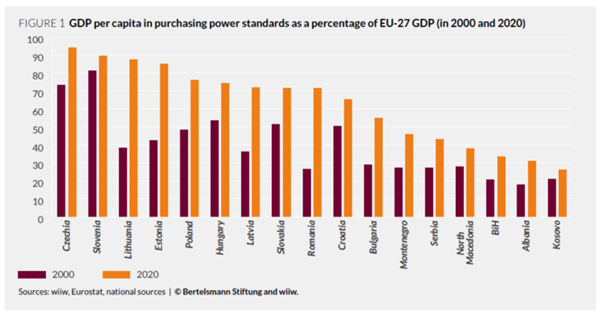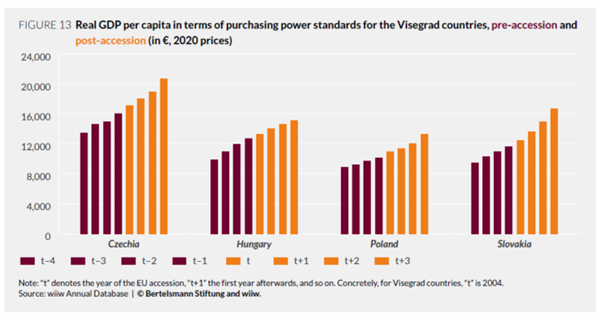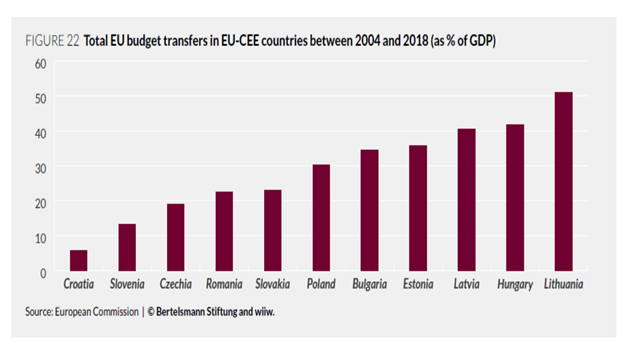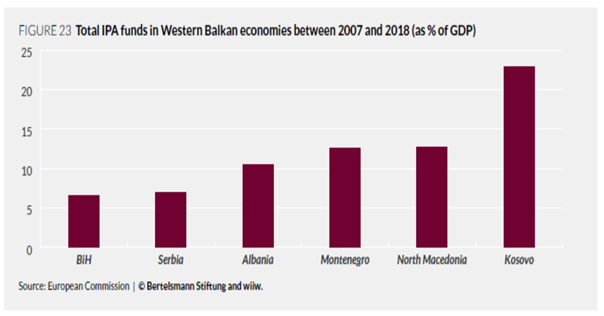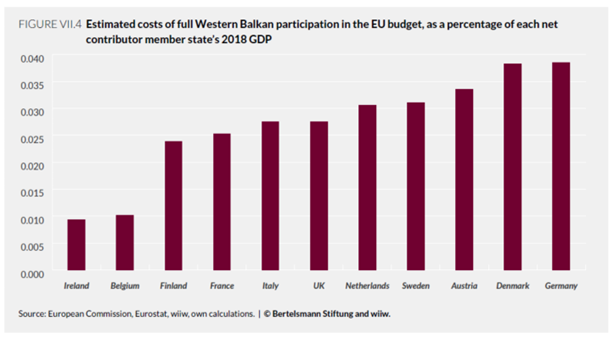Thread
The current EU strategy for the #WesternBalkans has been a disappointment. These countries have been waiting outside the EU for far too long. A #thread on our study with @BStBrussels on lessons to be learned from CEE EU accession, ahead of the #EUWBSummit. 1/9
Waiting outside the EU's doors has slowed down economic growth in the region. Incomes in the Western Balkans are now only about 30-40% of the EU average. 2/9
Because of that, in our study with @BStBrussels we draw lessons from EU membership of the Central and Eastern European states. We investigate, why and to what extent, regional economic integration improved in these countries after they joined the EU. 3/9
Conclusion: EU membership of the EU-CEE countries has increased trade in goods and services between them by 50%. 4/9
The main reason for this was the steep increase in incomes in the years following EU accession. For example, GDP per capita measured in purchasing power parities rose massively in the four Visegrád countries – 🇨🇿 (29%), 🇭🇺 (19%), 🇵🇱 (32%) and 🇸🇰 (44%) – between 2004 and 2007. 5/9
EU transfers to the new members proved to be the main factor driving the rise in incomes there. Doubling annual EU funds from 1% of GDP to 2% led to an average increase in GDP of no less than 14% in EU-CEE countries. On average, EU transfers accounted for 33% of their GDP. 6/9
The best way to improve regional cooperation in the region is to have policies aimed at raising incomes. The most effective way for the EU to achieve this would be higher transfers from the EU budget to these states. 7/9
The cost of the Western Balkan countries' access to the EU budget would be negligible for the existing EU member states at less than 0.04% of GDP. 8/9
Download the full study with @BStBrussels here: 👇 wiiw.ac.at/a-new-eu-strategy-for-the-western-balkans-n-553.html
A press release summarising the major findings is available as well: ➡️tinyurl.com/3r6zus7u
9/9
A press release summarising the major findings is available as well: ➡️tinyurl.com/3r6zus7u
9/9
